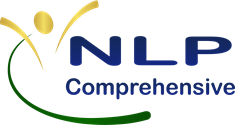I wondered about that NLP Presupposition for a long time. Finally, I thought of one place where it is really useful.
That place is behaviors you wish to simply stop, without replacing. Procrastinating is a very powerful way to stop those habits, behaviors, or addictions that you’re already really tired of. After all, isn’t the definition of procrastinating not doing?
For instance, I drank alcohol pretty consistently for most of my adult life. Last year I realized that as much as I loved wine it was just making me tired too soon and too often. I was getting a little bored with the whole thing, so I thought maybe it is better for me if I stopped drinking. It was pretty easy to just let it slip away. I simply didn’t get around to going to ordering wine with dinner, or somehow just didn’t get around to that section of the market.
Perhaps a better example is how I stopped smoking after 30 odd years of off and on, mostly on. This was before I had NLP in my life. With NLP you also have several specific processes like the visual swish that are more direct.
I started when I was 15 because my best friend in high school thought it was incredibly cool. Besides James Bond smoked, and he got all the hot women. So obviously you needed to smoke cigarettes and drink dry martinis if you wanted to get lucky with beautiful women. The wisdom of your average 15-year-old.
When I decided to quit I found out that what worked for me was simply putting off the next cigarette. I started by simply putting off my first cigarette. Instead of lighting up the minute I opened my eyes in the morning and got a cup of coffee, I just put it off by jumping in the shower first. I would defer until my first coffee break at around 10 and then stretched that until after lunch, then until the 3 o’clock break, and so on. Then I simply found that I could wait until after work when I would very carefully allow myself two cigarettes before dinner.
Since procrastinating was a talent that I’d pretty much mastered in college, it was kind of natural to apply it here. My thinking simply changed from “gotta do it now” to ‘oh sure, just do this first; or oh, sure, I just haven’t gotten around to it yet.
You do know about getting around to it, right? Of course, I’ll get around to smoke, well ok, at coffee break… yes, after lunch…after work… when I get home…
So for some weeks I successfully procrastinated every day until after returning home from work. Then one day I was distracted, was out of cigarettes, and it was just too much trouble to get back in the car to get more. And it was dinner time, and then the evening went on, and then it was time to go to bed.
And sure, I could just skip it till tomorrow. Then a few days and a week or two slipped past.
Fortunately, in my favor, lifestyles had changed a whole lot since I was 15 years old. Smokers had become a smaller and smaller minority, and so the triggers of social influence were working in my favor.
Where I lived those who had not died from smoking had pretty much stopped. It had changed completely from cool to uncool. Smoking was now, as a tobacco company executive famously said, “(only) for the young, the poor, and the ignorant.”
It has been many years now, and still, there may be the next cigarette out there –just very far out there, so far that frankly, I may never get around to it. You know how it goes with just not getting around to something, don’t you? Yep. So, I guess you could call me a quitter.
This is just one example of how even a behavior clearly labeled “bad” in every self-help program ever (hello 7 habits), can be very useful, in a specific context.
Your Brain Is Not for Thinking In stressful times, this surprising lesson from neuroscience may help to lessen your anxieties. https://www.nytimes.com/2020/11/23/opinion/brain-neuroscience-stress.html
